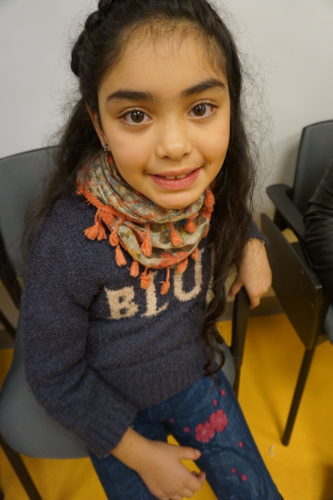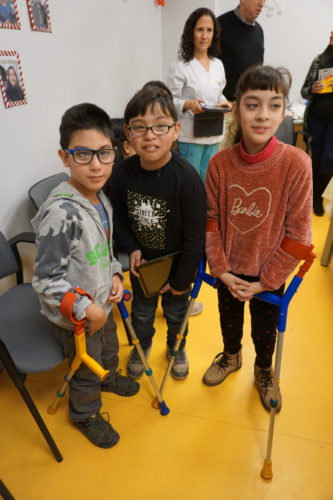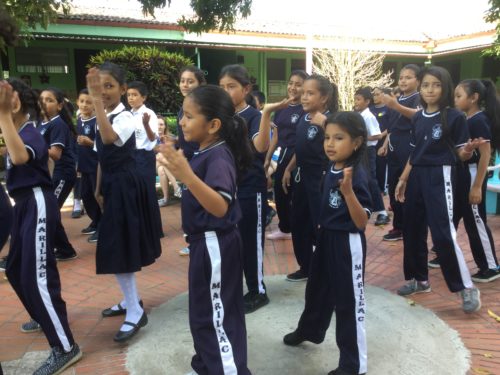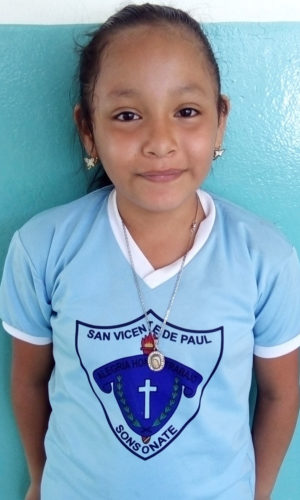In 1895, the Santiago Day School in Chile was founded as a school for girls who came from impoverished — and often neglectful and abusive — families.
Today, this Children Incorporated affiliated project continues to serve both girls and boys and their families who reside in downtown Santiago — 30% of whom are living below the poverty line.
Thanks to their sponsors, sponsored students receive food, school supplies and school uniforms. For those children whose families cannot afford to pay the school’s tuition fee, sponsorship funds cover those costs as well.
Managed by the Catholic order of nuns the Daughters of Saint Joseph, the school’s caring staff, which includes our volunteer coordinator Sister Claudia, works diligently to provide for some of the poorest children in Chile. Thanks to their sponsors, sponsored students receive food, school supplies and school uniforms. For those children whose families cannot afford to pay the school’s tuition fee, sponsorship funds cover those costs as well.
Additionally, both sponsored and unsponsored children benefit from the Santiago Day School’s sound academic program and its arts, music and recreational activities. Core academic subjects, including English, are offered for kindergarten through twelfth grades. In the afternoons, girls are taught sewing, crafts, flower arranging, and plant care and have time to play games and participate in sports.
Meeting Judit
While visiting the Santiago Day School, our Director of International Programs, Luis Bourdet and International Projects Specialist, Kristen Walthall, met with Sister Claudia and had a chance to tour the school and attend an awards ceremony.
“During our visit, we had the pleasure of witnessing students receive awards presented by the administration for following the school’s moral standards as well as supporting other students in their efforts for better achievement,” said Luis.
After the ceremony, Sister Claudia took Luis and Kristen to visit the beautiful home of Judit*, the mother of two formerly sponsored children, Juana and Carmen.
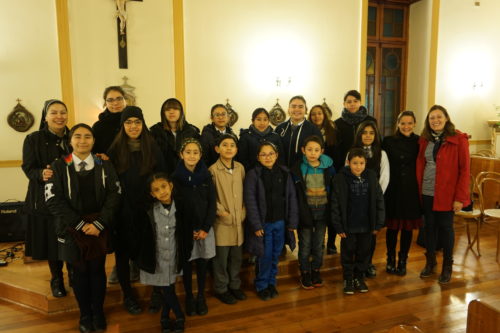
The Santiago Day School serves children living in poverty in Chile.
While meeting with Judit, Luis and Kristen learned that her home had been purchased for her by Juana, her eldest daughter, who is now 25 years old. The house was immaculately kept, and it was apparent that Judit was very proud of her home and happy to have Luis and Kristen as her guests.
Judit explained that Juana was sponsored by the same Children Incorporated sponsor through primary and secondary school. Both Judit and Juana felt that Juana’s sponsor made a significant impact in her life — which allowed her to study mine engineering at the University of Santiago in Chile once she graduated.
Much to be proud of
Today, Juana holds the title of Mining Engineer, and she is currently residing in Seattle, Washington, where she is studying English at a local university.
Judit told Luis and Kristen stories about how the entire family would gather to read letters from Juana’s and Carmen’s sponsors.
Yet, as Judit explained, it wasn’t just Juana who was benefiting from her years of having a Children Incorporated sponsor. Beaming with pride, Judit also spoke with Luis and Kristen about her youngest daughter, Carmen, who is now nineteen years old.
Carmen was sponsored through the Children Incorporated program from 2005 to 2018. Like her older sister, Carmen had the same sponsor all through her childhood until she completed high school. Carmen is currently studying information engineering, also at the University of Santiago in Chile. Judit felt that without her sponsor, Carmen might have never finished high school, much less have gone on to college.
Connecting with their sponsors
As she continued to reminisce about her daughters’ experiences in our sponsorship program, Judit told Luis and Kristen stories about how the entire family would gather to read letters from Juana’s and Carmen’s sponsors. They felt so close and connected to their sponsors through letter writing that the names of their sponsors’ pets became household names in their home.
For fun, they talked as a family about what their sponsors’ pets might be doing, and over the years, they enjoyed waiting with anxious anticipation for letters in the mail for more stories about those pets, and their sponsors, and how they were doing in their lives.
***
How do I sponsor a child in Chile?
You can sponsor a child in Chile in one of three ways: call our office at 1-800-538-5381 and speak with one of our staff members; email us at sponsorship@children-inc.org; or go online to our sponsorship portal, create an account, and search for a child in Chile that is available for sponsorship.

